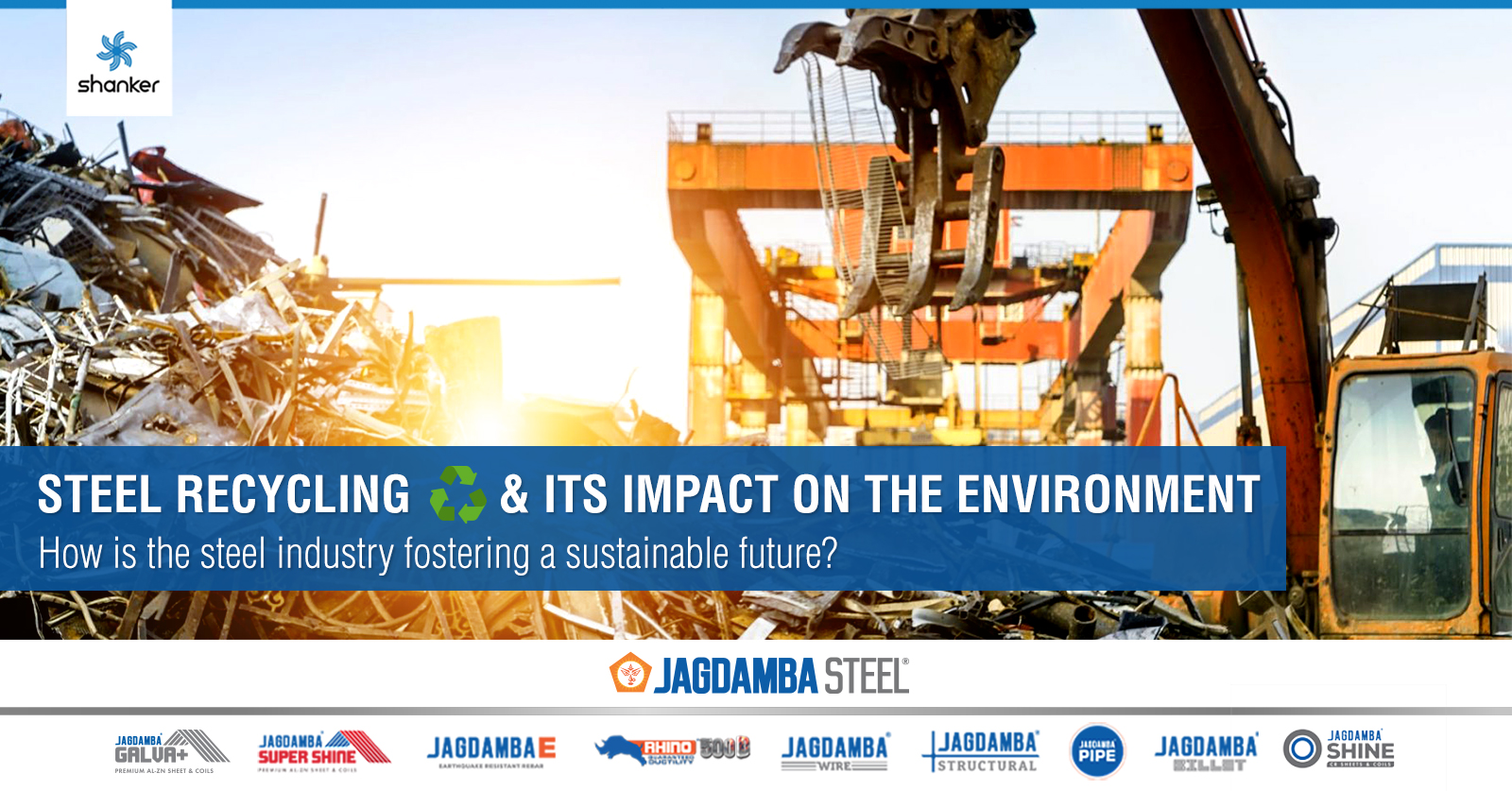Recycling is one of the best ways to help protect our environment. Be it a simple plastic bottle to construction materials, recycling gives us a chance to protect our environment through very little effort. While not everything we use in our lives can be recycled but many materials can be recycled, one of them being steel.
Steel is one of the most frequently used commodities in the world. It has a variety of uses in industry, transportation, and construction. Yet, the manufacture of steel is also one of the most polluting and resource-intensive sectors, with a considerable negative impact on the environment. Steel recycling is one strategy for reducing these effects.
Steel is a non-renewable resource, which means that once it has been taken out of the ground or melted down into pellets—Pellets are small balls of iron ore used in steel production; it cannot be renewed. As it might harm our ecosystem for several generations if we let it end up in landfills, we must develop methods to utilize this metal.
Here we will look at why recycling steel is good for the environment and sustainable development.
Why Recycle Steel?
Steel that has been recycled is an alternative to new steel. Although recycled product may be utilized in the same ways as virgin material, it has a smaller carbon footprint.
Steel that has been recycled is created from waste that would often end up in a landfill or be sent for recycling. Companies that gather this material then resell it to producers of new goods like automobiles and structures.
What is Recycled Steel?
Steel is available in a wide variety of shapes and sizes, including flat sheets, round bars, wire rods, heavy-duty coils, sintered preforms (a type of composite material), specialty steels like carbon/hafnium alloyed steel used in automotive applications, high-performance tooling steels like Inconel 718 used in aircraft engines, depleted uranium (DU) armor plates, as well as armor plating made of hardened tooling steel.
The term ‘recycled steel’ refers to steel that has been recycled from previously used steel. Steel recycling is the process of gathering scrap steel from diverse sources, such as old cars, building supplies, and industrial trash, and processing it so that it may be turned into new steel products. This procedure minimizes the energy consumption and greenhouse gas emissions linked to the manufacture of steel while also conserving natural resources.
What Does Recycled Steel Mean for the Future of Environmental Protection?
Recycling steel contributes to keeping environmental problems at bay. Recycling lessens the quantity of trash dumped in landfills and prevents this debris from entering our rivers, where it might cause contamination. Recycling steel has a variety of positive environmental effects. One ton of steel, for instance, may be recycled to save 1.5 tons of iron ore, 0.5 tons of coal, and 40% of the water needed to make new steel. By creating 86% less air pollution and 76% less water pollution than making steel from raw materials, recycling steel also lowers air pollution.
Steel recycling also results in financial savings since it lowers the expense of moving heavy objects from one location to another. In certain circumstances, recycling may become more economically feasible as a result of the decrease in transportation costs.
Also, there are financial advantages to recycling steel. It decreases landfill space requirements, lowers the cost of raw materials for steel producers, and generates employment in the recycling sector.
Even though recycling steel has several advantages, different countries have quite different rates of recycling steel. Almost 90% of waste is recycled in certain industrialized nations, like Japan and the US. Nevertheless, the percentage of recycling is far lower in many developing nations, like China and India, frequently because of insufficient infrastructure and a lack of knowledge.
Why Choose Products of Jagadamba Steel in Nepal?
We are one of the leading manufacturers of steel products in Nepal. Our products range from high-quality galvanized and Galvalume steel sires to TMT bars like Rhino 500D Rebars. In addition to these products, we also produce various types of steel sheets for use in various industries like the automotive industry and the construction industry.
Jagdamba Steels promotes and applies the principle of recycling used products to create new ones. Reusing and recycling steel are significant environmental protection measures. Steel is kept out of landfills, where it might harm ecosystems and cause animal deaths, by recycling it. You may choose Jagadamba Steel in Nepal with confidence knowing that you are promoting the long-term viability of our planet.
In conclusion, recycling steel is an important step in developing a society that is more ecologically friendly and sustainable. Steel recycling may greatly lessen the environmental effect of steel manufacturing by lowering the need for new steel and preserving natural resources. To raise the rate of steel recycling and advance a circular economy for steel, all stakeholders must cooperate.
